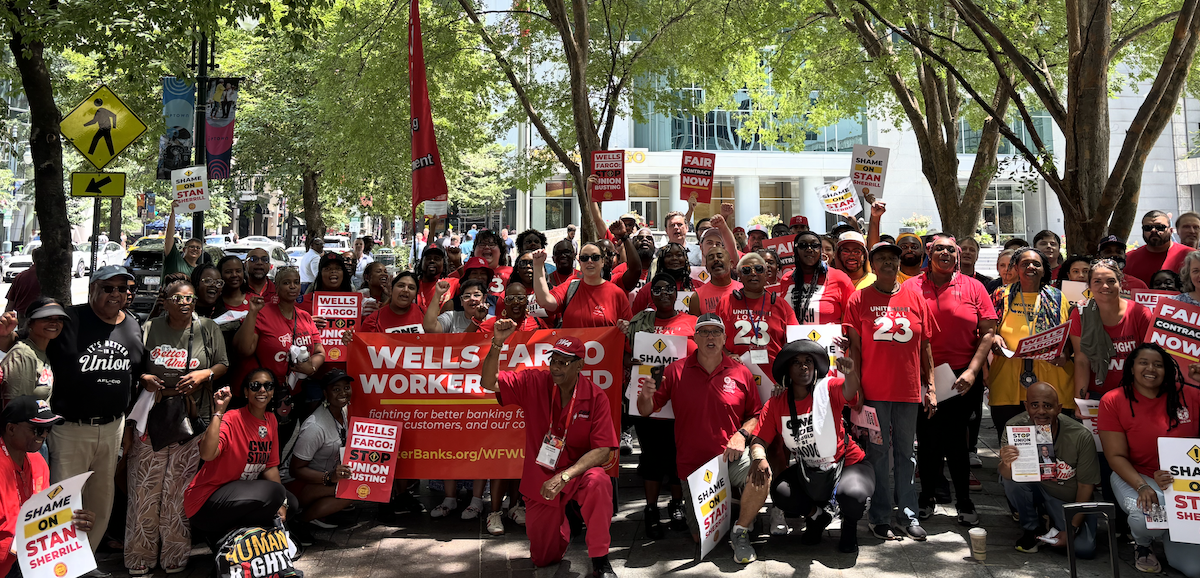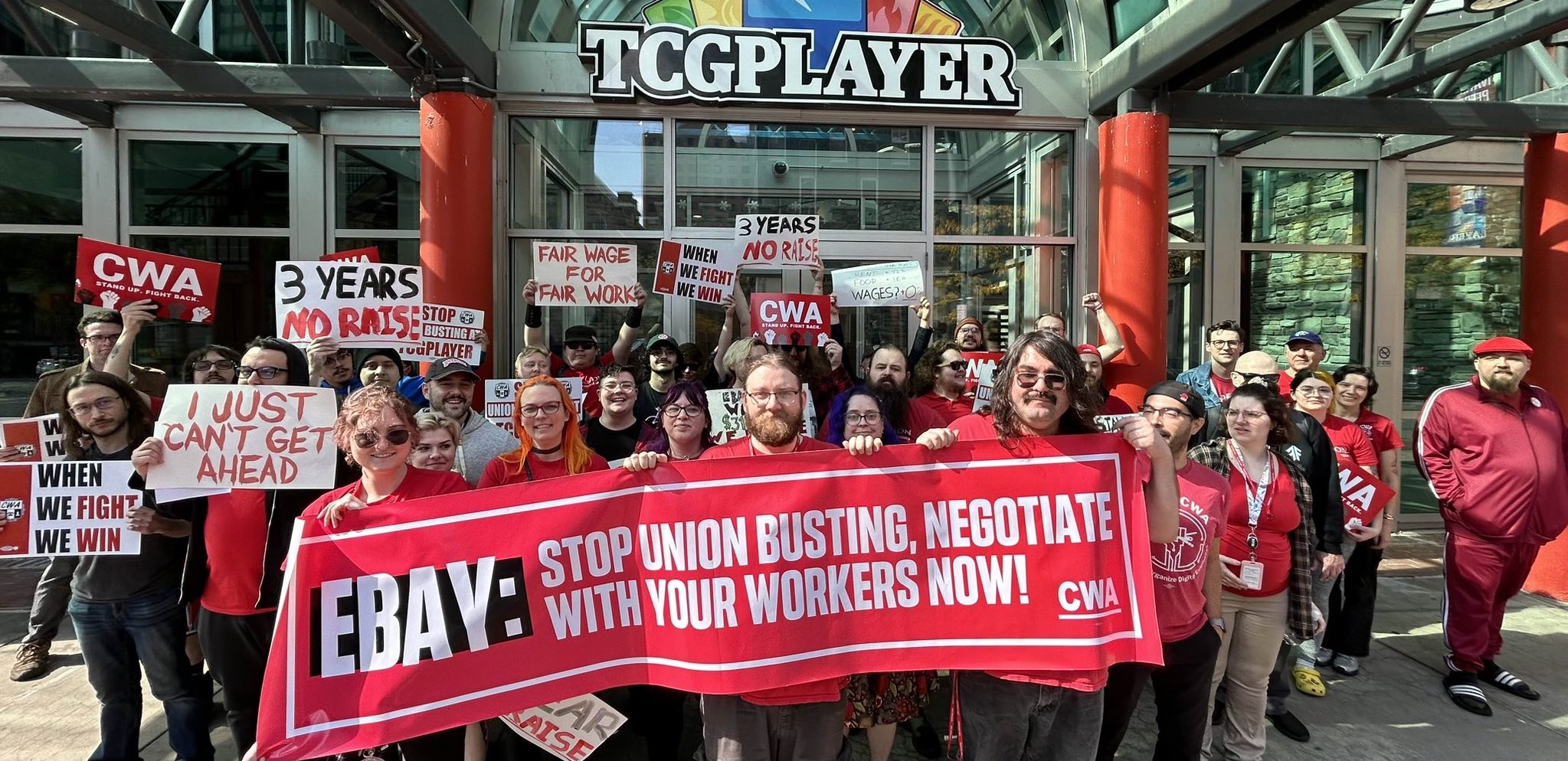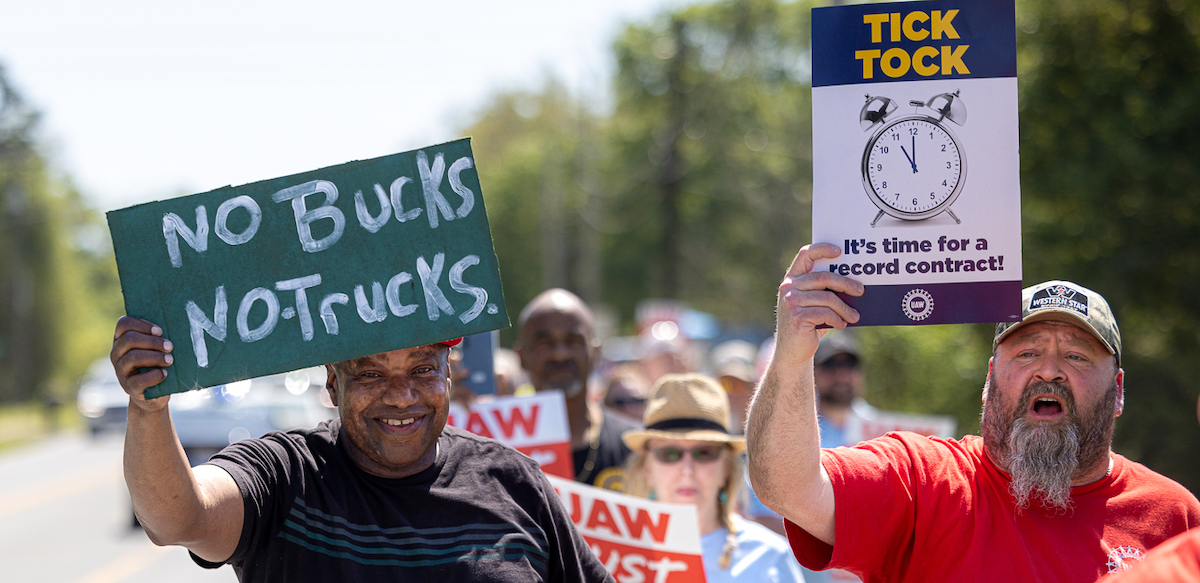Malaysian Workers Protest Union-Busting at Apple Supplier
Workers in Malaysia who make screens like the one you are reading this article on are protesting after union leaders were fired following an organizing victory. The workers make LED screens for companies including Apple.
The Electronics Industry Employees Union Northern Region (EIEUNR) won an election in November to represent workers at the Lumileds factory in Penang. Of the 1,200 eligible voters, 65 percent voted for the union, with 89 percent turnout.
North Carolina AFL-CIO Convention Backs May Day 2028 Plans
The North Carolina AFL-CIO passed a resolution at its September convention backing the call from the United Auto Workers for mass action on May 1, 2028.
AT&T Southeast Workers End Month-Long Strike
Seventeen thousand AT&T workers in the Southeast returned to work September 16 following a month-long strike.
Members of the Communications Workers (CWA) in nine states from Kentucky to Florida walked out on an unfair labor practice strike August 16 over accusations the telecom giant was bargaining in bad faith.
The strike included technicians, call center workers, and others who build and maintain the AT&T network.
Secrets of a Successful Organizer Now Available in Seven Languages
We are happy to report that Secrets of a Successful Organizer has now been translated into seven languages: Spanish, Japanese, German, Chinese (simplified and traditional), Swedish, and, most recently, Danish and Quebecois French. (See below for details on how to get copies.) We’ve also heard from union activists in Brazil, Norway, and Poland who are interested in translating it.







You must log in or register to post a comment.